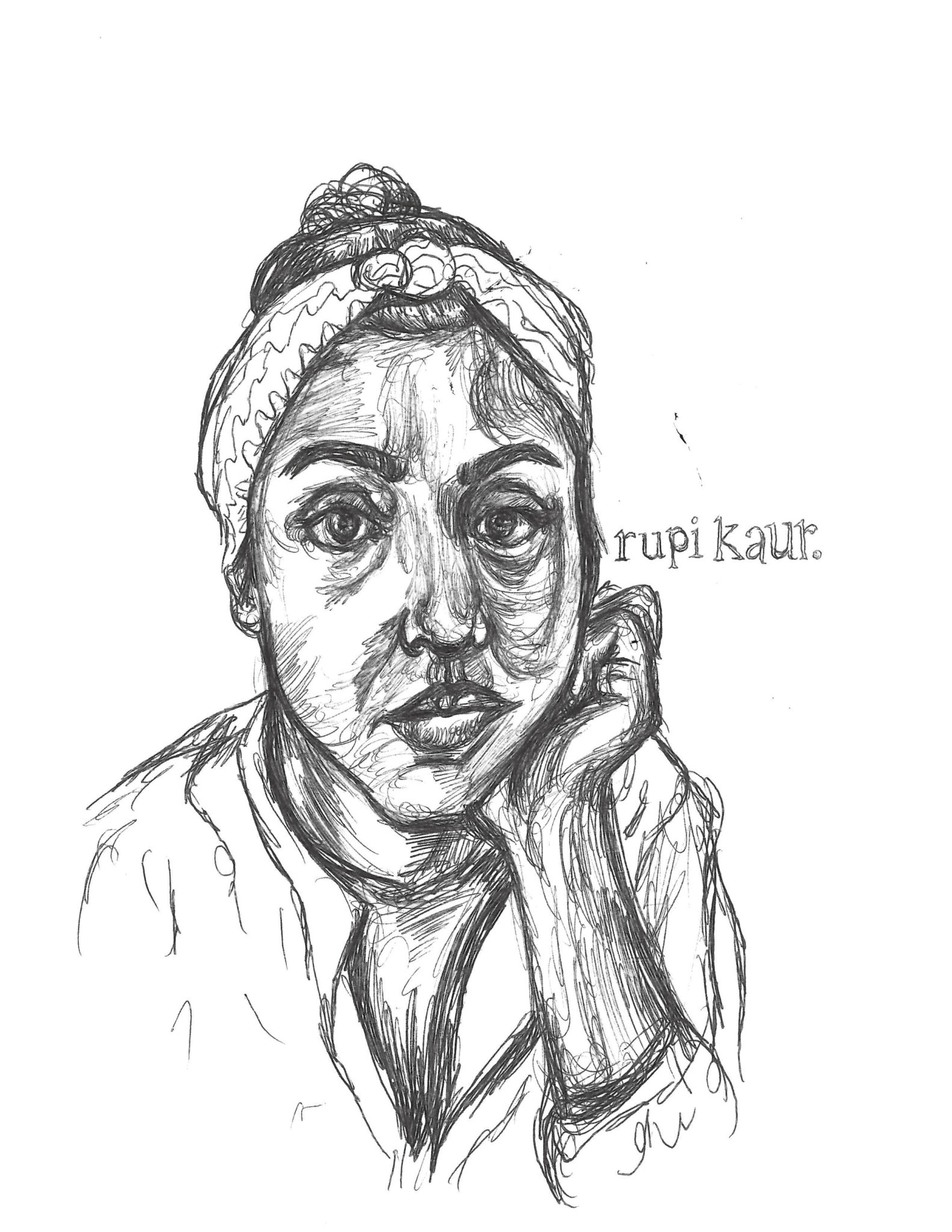
“The universe took its time on you
Crafted you to offer the world
something different from everyone else
When you doubt how you were created
You doubt an energy greater than us both”
— irreplaceable
I first discovered Rupi Kaur’s poetry late one seemingly endless night. It was hours after I had gone to bed, but hours before I was able to fall into a fitful sleep.
As with more nights than I can remember, my body was terrifyingly exhausted yet my mind wouldn’t silence itself enough to let me drift off. I lay on my side, duvet a mess, pillows flopped to one side, face lit up by the soft glow emanating from my phone screen. I had refreshed my Instagram ‘Explore’ page so many times that the passive scrolling of my thumb had become mindless muscle memory.
“If you were born with the weakness to fall you were born with the strength to rise” — my thumb hovered, faltered and stopped. I stared at the four lines until they merged into one greyish blob, until they swam in and out of my blurry vision, until my hands were able to find stability once more. The words were straightforward, their concept even simpler, and yet I knew I was failing them. They rang in the echo chambers of my overcrowded brain, quieting the thunderstorm that had been brewing within.
This was a few years ago. Kaur’s first poetry anthology, “milk and honey,” had just migrated from Instagram and Tumblr posts to dog-eared bookshelves and the window-front displays of global bookstores.
Kaur’s second anthology, “the sun and her flowers”, released in October, has once again catapulted Kaur to the top of the New York Time’s best sellers list. Its five chapters — wilting, falling, rooting, rising and blooming — not only chronicle the process of losing and finding oneself after heartbreak, mental illness and physical trauma, but also address issues of immigration, lineage and the replanting of one’s roots in a foreign country. In Kaur’s own words, “the sun and her flowers” is a collection of poetry about grief, self-abandonment, honoring one’s roots, love and empowering oneself.”
Yes — many of Kaur’s poems are short and state the obvious, but sometimes the overt needs to hit you in the face. Despite criticism that she’s too much of an “Instagram poet” who doesn’t have anything nuanced to say, I hold onto Kaur’s words like an infant clutching her most beloved blankie. Perhaps it’s in the obviousness of her messages, perhaps it’s in her use of seemingly random line breaks, or perhaps it’s in the simplicity of her language and the honesty of her confessions that Kaur manages to address heavy issues in a gentle, yet thought provoking way.
In the internal game of “Simon Says” that my brain and heart never quite learned how to play, Kaur writes what my brain knows logically to be true, yet cannot follow. Somehow seeing physical manifestations of the arguments raging within me, the thoughts that ring loudly in my ears, makes my attempts to conquer them slightly more manageable.
Her poems are carefully threaded lines of subconscious rambling and unrestrained emotion. In their lack of punctuation and capitalization, Kaur’s poems are akin to snuggling into a cozy blanket fort on a rainy winter day — warm, comfortable and protected from the whirling winds outside. The uniformity of font, page position and the vivid illustrations accompanying each poem establish a sense of order even though much of the book describes feelings of dissonance.
While some of her poems inevitably reignite explosions in the crowded echo chamber of my head, her stories, for the most part, serve as an inspirational reminder. Kaur articulates her personal journey, the universal experiences of women and the feelings of immigrants’ children amid the harshness of the real world. Her poems arm readers with an almost ethereal strength to climb the mountains they face -— however tall they may be.
Sometimes, her message is overt: “if i am the longest relationship of my life isnt it time to nurture intimacy and love with the person i lie in bed with each night.” Other times, her syllables weave in and around each other in a manner that is less obvious but equally weighty: “we have been dying since we got here and forgot to enjoy the view” or “i long to be a lily pad.”
To be honest, I can’t explain why I’ve been so enraptured and enamoured by Kaur’s words. They are, as so many criticize them to be, simple. Many of her poems are one liners that fit into the small square of an Instagram post. But somehow, this was just the formula needed. Somehow, she found the profundity of simplicity.
Like constant thumping in my chest reminding me I’m alive, Kaur’s words reverberate within me. I am not alone. I, like the sunflowers she so adores, can replant my tangled roots and blossom for the world once more.
Hana Davis | hana.davis@yale.edu .







